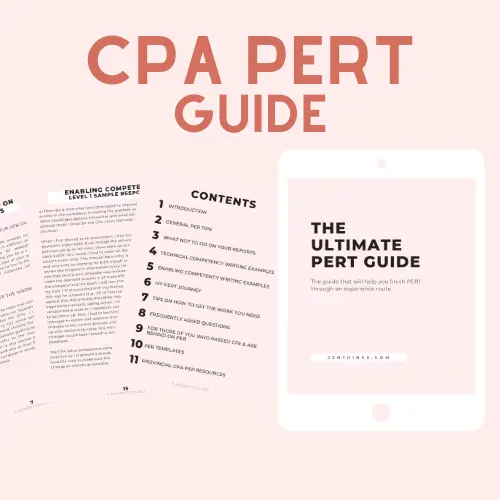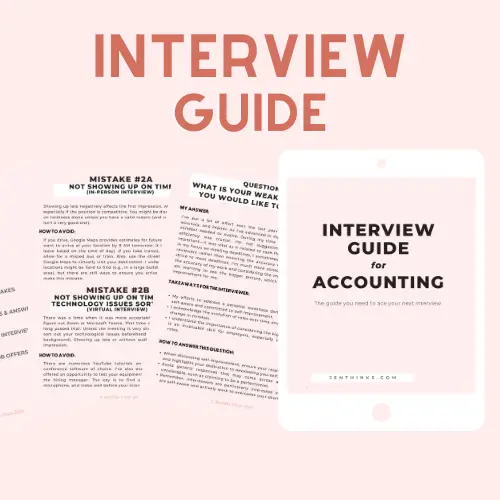Early 2015, I was 22 and graduated from one of the best universities in Canada with a major in Psychology. I was not sure about a lot then, but I was sure I did not want to pursue a career or higher education in that field. So, why did I just spend the last four years of my life getting a piece of paper that will not jumpstart my career? I only found the answer shortly before I attended my convocation – I did not know what I would do instead if I did not get a degree. It did not matter to me what degree it was as long as I got that piece of paper. I was not the first person in my family to go to university but I somehow still felt the pressure to do so. It just felt like the next logical thing to do.
For months after I graduated, I worked a couple of part-time jobs while I figured out what to do with my life for the next 40+ years before retirement. Eric told me about CPA (prior to that, my perception of a CPA career was the same as many outside of our field: taxes). I started reading about the profession and was pleasantly surprised when I thought my interests aligned with this career path (numbers and money). As an avid planner (who changes her plan a lot), I ran some numbers and concluded that I could get my CPA just before I turn 30. There was no specific reason why getting designated before 30 became a goal but it was a nice, even number. In hindsight, I might or might not have chosen a different career path if it was going to take longer than that.
Last Friday, two weeks before my 30th birthday, I got the admission email I had been waiting 7 years for. I am a CPA.
Like many who have walked this path before me, I had the same struggles: the PEP program was demanding, the 3-day CFE was challenging both mentally and physically and PERT required more work than I ever imagined. However, what was unique about my journey was that I shared my experience and struggles every step of the way. I shared everything I have experienced and learned as a CPA candidate in close to 100 posts. Now, I want to dedicate this post to people who are considering the CPA designation or going through the PEP program. These are things I would tell the 23-year-old me when I decided to become a CPA. Note, not all of these lessons have to do with accounting. However, they helped me navigate the corporate world without sacrificing my mental health and what mattered to me. As you progress in the program, you will learn that the education part is a small part of the puzzle. Your career as a CPA will be shaped by multiple aspects of your life.
Be Confident & Believe in Yourself.
Believing in myself took years of practice. If you asked me before I started PEP, I would tell you that I thought I would become a CPA before I turn 30. If you asked me the same question when I found out how difficult PERT was going to be shortly after I started PEP, I would tell you that I will try my very best to become a CPA before I turn 30. Then, I started this blog, went through some challenging times in my career and met some amazing people that I continue to learn from. All of these pieces necessitated my need to have faith in myself. I did not become arrogant (in fact, the more I knew, the more I realized how much I had to learn) but I became confident. I realized that if I set out to accomplish a goal, put in the necessary work and remain disciplined, I will accomplish just that. For example, I told myself I had to stay active on my blog while I went through CFE prep with limited time off. I accomplished that by keeping my followers updated every step of the way. I wanted to be there for them because many candidates went through the journey alone. When I wrote the 3-day CFE, I brought my laptop to the hotel I was staying overnight at so I can share my experience immediately after I wrote day 1 and 2 (day 3 came later that week as I decided to celebrate). I felt it was necessary to do that for two reasons: my memory would be fresh from my experience and my fellow CFE writers would be interested to read about them right away. It was all worth it because people messaged me and told me how much they appreciated my real-time update after writing the hours-long exam.
Two months before CFE, I also started a new role at work. I had my doubts and hesitation but with a little motivation from my manager, I took the leap of faith. I convinced myself I can meet (and hopefully exceed) expectations in my new role while maintaining my blog and prepping for CFE. It took some work but everything worked out in the end.
I owe my confident mindset to many people including my family and a supportive workplace. However, ultimately, I owe it to myself. I set out to prove to myself what I am capable of by keeping the promises I made. So, if I can go back in time, I would tell that 23-year-old to be confident and believe in herself.
Learn From People You Admire, Whoever They Are.
I was raised in Hong Kong and learned from an early age to listen to authority without question. While I appreciated the lessons on respecting people in power, I think I got lost somewhere along the way. When I should have learned from people with admirable values and abilities, I placed more emphasis on their positions in life. I had mistakenly thought that I can always learn more from someone who was a high-level executive than someone who was in an entry-level position.
I realized I had it all wrong when I started realizing I learned the most from people who were hardworking, honest and resilient, regardless of where they are in life. I witnessed someone take a leap of faith and go back to school to pursue a completely different career. All the while she supported herself living in one of the most expensive cities in the world. I learned from someone who was in a similar position as I was when we met, and went on to manage a large multi-function team after proving herself over and over again that she was nothing short of capable. I watched in awe when my friend prepared for CFE with a new born at home when many, including myself, struggled with no tiny human depending on me. None of these amazing people made it to the top of the corporate ladder (yet) but they taught me so much about being resilient.
What I would say to my old self is this: surround yourself with people with qualities you admire and appreciate them for being there.
Cherish A Good Manager or Mentor.
I started working as soon as I turned 16 so I had a number of part-time jobs before my accounting career. As a result, I have met my fair share of mentors and managers.
All of the amazing managers I have come across all shared the same qualities: competent, respectful and fair. When I worked at Starbucks years ago, I had a manager who went above and beyond to keep me on payroll when I had to take an extended leave for a family emergency. Not once did she rush my decision to return (but I did because that was indeed my happy place). If you worked retail, you would know that scheduling was one of the most challenging parts of the job. Years have gone by but I would still think back to what she did for me and felt incredibly grateful that she showed me that level of compassion. In more recent years, I have worked with people who coached me in ways that left a lasting positive impact on my career. They helped me navigate career choices when I had doubts about what was best for me at the time. They shared what they learned both from their successes and mistakes while making sure I was aware that the decision was ultimately mine to make.
I once asked a Finance executive what advice he would give to his younger self and what he said has been on my mind since: he wished he had stayed longer with an amazing boss he had instead of running after a promotion. His reasoning was that a promotion would always come around but a great boss might not come as often. This exact advice is what I would tell my older self.
Think Beyond Your Job When It Comes to Financial Freedom.
When I was growing up, I had this firm but vague belief that a 6-figure job would simply come in time. Fast forward to now, the job has not arrived but I learned there are other ways to get to a 6-figure income. I have been diversifying my income since my early 20s and even though my job still provides the largest single source of income, it is far from being the only source. I have been investing in the stock market (literally started with 1 share of BMO) for years and expanded my portfolio over time. This year, I started selling digital products which will hopefully become a nice addition to my income. The reason why diversifying my income has been so important to me is mainly because of this: to have financial freedom. When you depend on only one source of income (e.g., your full-time job), that becomes your one and only option. Unless you have a sizable emergency savings and no dependent, otherwise you will have to do everything possible to keep your job. When that happens, your job would always come first because you quite literally depend on it to live and eat. This means that even if something is seriously wrong and your mental health is suffering, you will have to stay because you’ve got nothing else. On the flip side, when you stay in a job even though you can survive without it for some time, it means that you choose to be there. You choose to show up to do the best you can everyday because you want to be there. Knowing this can impact your mindset positively in so many ways.
I learned early on my CPA journey that an accounting career might not be the best-paying careers right off the bat. For an entry-level accounting position, you can expect an annual salary from $38K to $50K (outliers exist but these are common starting salaries in Vancouver). If you live in an expensive city like Vancouver, this is far from a comfortable living wage. After few years of experience and a couple of promotions, you can expect to make close to what an entry-level software engineer would make. However, I have learned not to let my salary dictates my happiness and satisfaction. This does not mean I advocate for being underpaid (quite the opposite), but it means I look beyond the dollar figures.
So, if I can tell my old self from 7 years ago, it would be to think about diversifying my income even more and start earlier. Financial freedom does not mean not working. It means having the freedom to choose what you want to do in exchange for food on the table.
Be The Biggest Advocate for Yourself.
Unfortunately, it is unlikely that you will encounter only supportive peers in your career. There will always be ups and downs and good and bad. Often, this is outside of your control. However, it does not mean that you need to just accept it. To be an advocate for yourself means putting yourself first. I don’t mean to be selfish and sacrifice others’ well-being to get what you want. I mean to take care of yourself mentally and physically before worrying about others. I said this before and I will say this again: you can’t take care of others if you can’t take care of yourself first.
Making sure you are compensated fairly is one way to take care of yourself. Do market research online, talk to recruiters and pay attention to the job market. In business, everything is a transaction. Your employer is paying you to do a job for a price. It is no different than you are paying your hair stylist for their service. However, that is not to say I have not stayed in a job where I was not compensated fairly before. I took care of myself by understanding why I chose to stay – it could be the flexibility, the people and/or job environment. I would only leave when those reasons no longer contributed positively to my well-being.
What I would tell my old self is this: as early as I can in my career, identify my core values and set my boundaries. If family is important, put them first. If relationships are important, consider what impact my actions will have on those I care about. If integrity is important (as it should), act always as if someone is watching and listening. It can take only one unplesant experience to take away all the excitement and hope you have about becoming a CPA. Completing the CPA PEP program requires a lot of time, stamina and efforts. Your CPA journey will be a lot smoother if you remain enthusiastic and optimistic about the day you get your designation.
Evaluate Your Decision Regularly
Since the moment I decided to become a CPA seven years ago, I never once thought I should stop. However, what I was going to use my designation for was not always clear to me. I had hoped that it would lead to a stable job that was meaningful in some ways. Beyond that, I did not have a clear understanding until more recently.
In the past couple of years, I constantly thought about what I will do with my designation and how that would align with my long-term goals and happiness. Over time, I came to understand what I would like to do with those 3 letters after my name. With my blog, my designation would give me the authority to transition from someone sharing her journey as a student to someone sharing her journey as a CPA. The digital products I now offer are created and backed by someone who has accomplished what she set out to do. At work, I can continue to progress in my finance career now that I am a CPA like many of my peers and superiors. My job will provide me with a comfortable income and job satisfaction as long as I continue to challenge myself at work.
Obviously, not everyone will start a blog like I did. However, we should all define why we are pursuing the professional designation over something else (e.g., MBA, a trades license). Some might use what they learned from the program and go on to have a successful career in an area outside of Finance. Some might start a business. Your reasons are what will keep you going.
So, my last message to my old self would be this: identify your ‘why’ so you will commit to the journey fully.



Comments are closed.